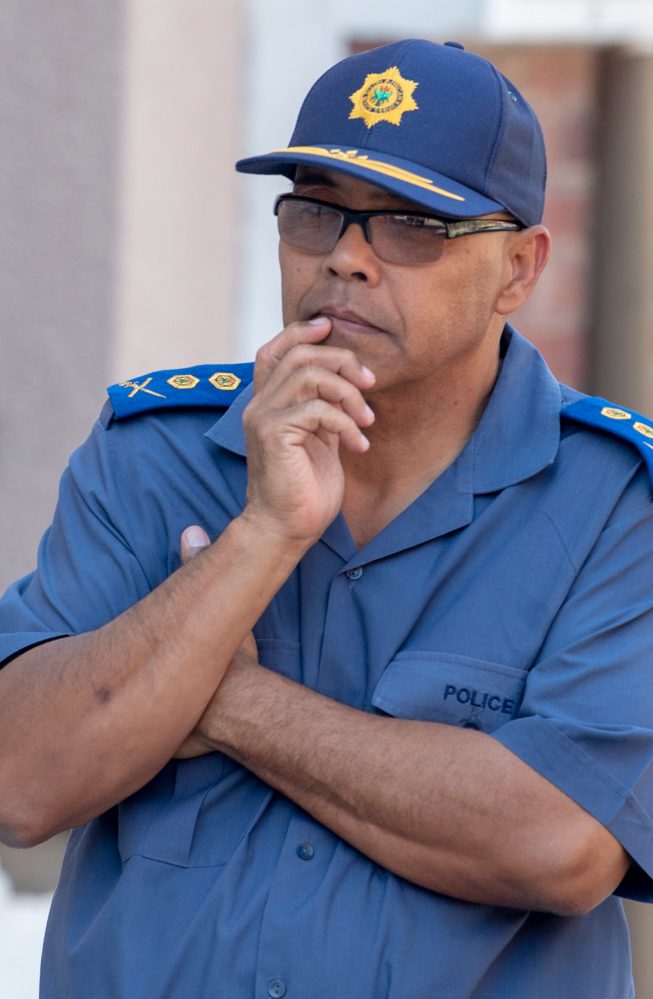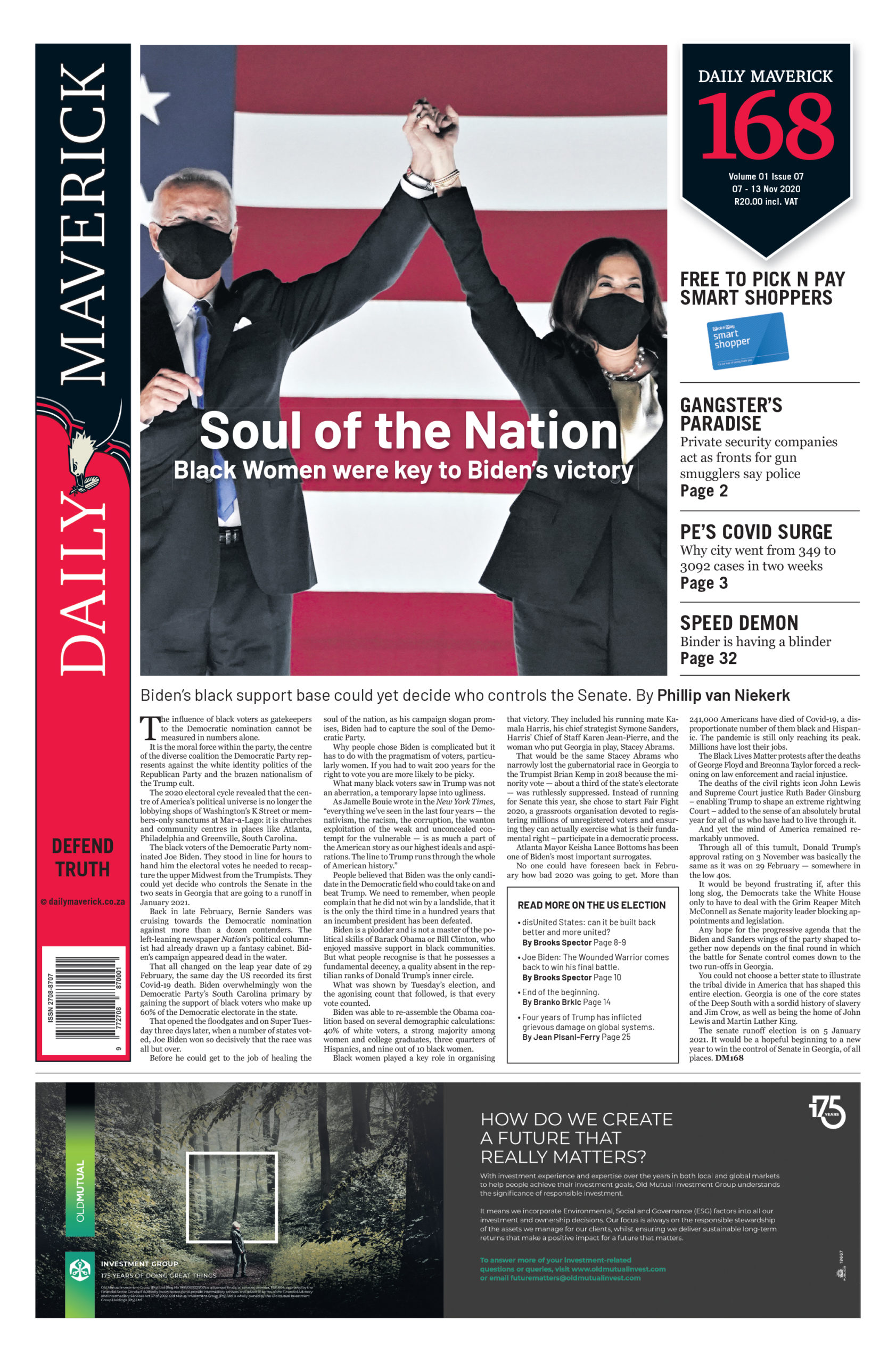Age of the Assassin 168
Gun-running cops, guards and thugs

Firearm-related crime allegations are increasingly tainting police and the private security sector.
First published in Daily Maverick 168
The extreme depth of South Africa’s seething problem of firearms finding their way into criminal hands is becoming clearer, with police investigators not only pointing to groups of crooked colleagues, but also to some private security outfits as effective fronts for gun smuggling.
These allegations show just how flimsy the buffer is between residents and criminal syndicates – if they don’t trust cops they can turn to private security, but this could also backfire and instead expose them to crime.
Private security pitfalls surfaced again last Monday in the Western Cape High Court during a failed application to have firearms confiscated by the police returned to a company. This court action had been initiated by the company ASP Elite Protection Services CC, which, according to court papers, is registered with the Private Security Industry Regulatory Authority (PSIRA) as required by law.
It was brought against police officials including the police minister and two officers – one Captain Jeftha, an apparent reference to Althea Jeftha, who is part of a police team in Cape Town investigating high-profile organised crime, and Lieutenant-Colonel Charl Kinnear, who had also been on this team.
Kinnear was assassinated outside his Bishop Lavis home in Cape Town on 18 September. Among the cases Kinnear had been investigating were several allegedly involving Cape Town underworld suspect Nafiz Modack.
Modack’s name also cropped up in last Monday’s unsuccessful court application, further strengthening links between him and cases Kinnear investigated, and marking the second time in about three-and-a-half years that his name has been tied to a private security company that has approached the Western Cape High Court to have seized firearms returned.
For his part, Modack has claimed that certain police officers in Cape Town – including Major-General Jeremy Vearey, who heads the Western Cape’s detectives, and Major-General Andre Lincoln, who heads the Anti-Gang Unit (both close colleagues of Kinnear’s and who are instrumental in organised crime investigations) –are running a conspiracy against him, and that they are in fact the criminals.
The judgment in the unsuccessful court application explained how police came to suspect there was something amiss with firearms linked to ASP Elite Protection Services. It said the case stemmed from an incident on 4 May when police officers had arrested Grant Davids, an employee of the company, after they found firearms in the car he was driving and at his residence.
“The members of [the] SAPS who stopped Davids’ vehicle, had noticed that he was wearing black combat clothing and a black balaclava. They could clearly see that there was a shotgun in the front of the vehicle,” the judgment said.
“When Davids got out of the vehicle, they noticed that he had a firearm in a holster on his right side.”
Davids had a permit for this firearm, a Glock pistol, signed by ASP Elite Protection Services’ manager Avron Poggenpoel.
He also showed police that he had another Glock pistol, which he said was his personal firearm, in a medic bag in the vehicle.
“He was unable to produce a licence for this firearm and instead showed Jeftha a statement made to the police wherein he stated that he had lost his wallet with the licence therein,” the judgment said.
Davids had a third Glock in the car, which was searched at the police station in the suburb of Woodstock, but “could not produce a permit” for it.
“He also took out of the car three plastic ammunition boxes containing 136 live 9mm rounds,” the judgment said.
Davids, it said, failed to disclose to officers that he had a fourth Glock that they found in a pouch attached to his pants and for which he could not provide a valid permit.
Police officers had accompanied Davids to his residence and searched it.
According to the judgment, they found “a large number of live ammunition, two police caps and six keys to safes or a safe were found”.
Police had seized three Glock pistols, a shotgun and ammunition including 40 rounds for a shotgun and 100 rounds for Glock pistols, and Davids was
arrested.
Eight days later, on 12 May, he was released on bail and Poggenpoel had then instructed his attorney to ask that police return the firearms and ammunition they had seized.
Poggenpoel’s attorney had therefore contacted Kinnear, who in turn addressed several queries to him.
Kinnear had not reacted to the attorney’s response and this led to the application in the Western Cape High Court to have the seized firearms and ammunition returned.
But the police hit back, saying “that the operations of the applicant, in which the possession and use of the firearms are integral, are illegal.”
This is where they claimed Modack fitted in. The judgment said police had alleged that “for extended periods” a firearm had been given to Modack, who they further alleged was “a convicted criminal and suspected to be (and being investigated as) a leader of the criminal underworld”.
Police had apparently found evidence of firearm permits being handed to Modack.
“One of the permit books found in Davids’ possession was used exclusively to issue permits to Modack by Davids for the possession of the Glock … According to these records, permits were issued to Modack on eight occasions, each occasion for a period of about one week. Such permits were issued from 26 January 2020 until 18 March 2020. One of the permits is undated,” the judgment said.
In December 2017, a police sergeant testifying in another court matter relating to TSG said even PSIRA investigators feared for their lives when having to take on certain security companies.
“Modack is not a security officer employed by [ASP Elite Protection Services], is not in possession of a competency certificate, and is not registered as a security service provider with PSIRA.”
The police argued they needed to keep the firearms for further investigations, including ballistic testing, “required as evidence for the prosecution of the applicant, its managing member, Poggenpoel, Davids, Modack and other persons”.
Charges would include transgressions of the Firearms Control Act (FCA), the PSIRA Act and organised crime offices.
Poggenpoel’s attorney had denied that firearms and ammunition were given to a third party who was not employed by Poggenpoel and who did not comply with section seven of the FCA.
But in dismissing the application, the judgment concluded: “A further matter which militates against the return of the firearms to the applicant, is the evidence that [the] SAPS is conducting a high profile investigation concerning a link between the procurement of firearms licences in terms of the FCA to facilitate the illegal interests and activities of organised crime.”
The ASP Elite Protection Services application is strikingly similar to an application that also played out in the Western Cape High Court in July 2017.
In that case firearms had been confiscated from Cape Town-based company
Skhosana Maponyane Hall Phillips and Khumalo, trading as The Security Group (TSG), which had launched an urgent application to have these returned.
Police previously alleged Modack was linked to TSG.
In an affidavit in that application, Lieutenant-Colonel Michael Barkhuizen of the Hawks had alleged that back in 2014 Grant Veroni, who was involved in running TSG, had applied to licence 10 firearms at the police station in the Cape Town suburb of Bellville.
Veroni had included a motivation saying that TSG needed firearms to provide an effective service to the public.
Another part of the motivation was a list of security guards apparently employed by TSG at the time.
But Barkhuizen had alleged this list was fraudulent.
“It is suspected that TSG placed an advertisement on the internet offering employment to registered security guards and obtained their CVs in this manner. The particulars of these guards (including their PSIRA registration numbers) were then fraudulently used in that Veroni falsely alleged they were employees of TSG, whereas they never were employed at TSG.”
This application was also reportedly unsuccessful.
In December 2017, a police sergeant testifying in another court matter relating to TSG said even PSIRA investigators feared for their lives when having to take on certain security companies.
Firearms and fraudulent firearm licences being channelled via police to criminals has also for years been a massive problem in South Africa, particularly in the Western Cape and Gauteng.
Concerns were previously raised about whether private security services across the country were being abused, with some individuals operating legal companies simply to access firearms that they then used illegally, but under the guise of an above-board business.
Last month, PSIRA deputy director of law enforcement advocate Linda Mbana told Parliament it was tackling criminal elements among security officers.
In May 2019, Police Minister Bheki Cele also gazetted draft regulations relating to PSIRA and firearms.
Firearms and fraudulent firearm licences being channelled via police to criminals has also for years been a massive problem in South Africa, particularly in the Western Cape and Gauteng.
In June this year, 16 suspects – including eight police officers and two former cops from Gauteng, as well as six others including Modack – were arrested.
Just more than a week ago two Gauteng station commanders were also detained.
It was alleged the officers were part of an expansive network that was involved in creating fraudulent firearm licences.
Kinnear had been investigating this.
The case is not isolated – suspected 28s gang boss Ralph Stanfield is also alleged to have been in cahoots with police officers accused of issuing fraudulent firearm licences, and former police colonel Chris Prinsloo, of Vereeniging, previously confessed to stealing weapons, meant to have been destroyed by police, that allegedly ended up with gangsters in the Western Cape. DM168




















 Become an Insider
Become an Insider
Comments - Please login in order to comment.